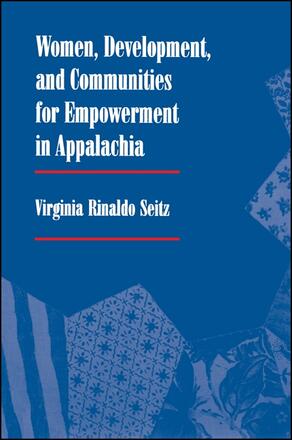
Women, Development, and Communities for Empowerment in Appalachia
Alternative formats available from:
An examination of the class and gender conditions of working-class women in the coal mining fields reveals how they struggled for development and change and how the struggle sometimes lead to empowerment.
Description
This book is an examination of gender and social change in the coalfields and nearby areas of Southwest Virginia from the standpoint of working-class Appalachia women. Through intensive life history interviews and participant observation, the author explores women's lives within the spheres of family, work, and community, and how women have changed through participating in grassroots community development, income-generation, labor, and support groups. Grounded in feminist theory, the work offers insights into collective action, empowerment, and development in the United States, and relates these issues to international "women in development" scholarship and practice.
Virginia Rinaldo Seitz is Visiting Assistant Professor, Virginia Polytechnic Institute and State University.
Reviews
"This book is a wonderful feminist exploration of a topic not often explored in the feminist literature—working class women in an isolated, rural setting. It pulls together a complex web of perspectives and avoids what is commonly a 'colonizing discourse' on the topic. The Women in Development literature is effectively applied, as is feminist theory (particularly socialist feminism). Major critiques/clarifications are provided of such works as Marx's analysis of capitalism and Buvinic's analysis of community organization. Taking the perspective of these women turns much of our conventional thinking on its head. "— Anne Statham, University of Wisconsin-Parkside
"The author has produced an excellent study of gender and social change. She has also broadened the audience and impact of the study by comparing the Appalachian region to peripheral zones in developing countries, and drawing heavily (and usefully) on the women and development literature. I also like the methodology. It is an excellent use of in-depth, qualitative life history interviews. The interviews speak strongly and are skillfully woven together around key themes and analysis. " — John Gaventa, University of Tennessee